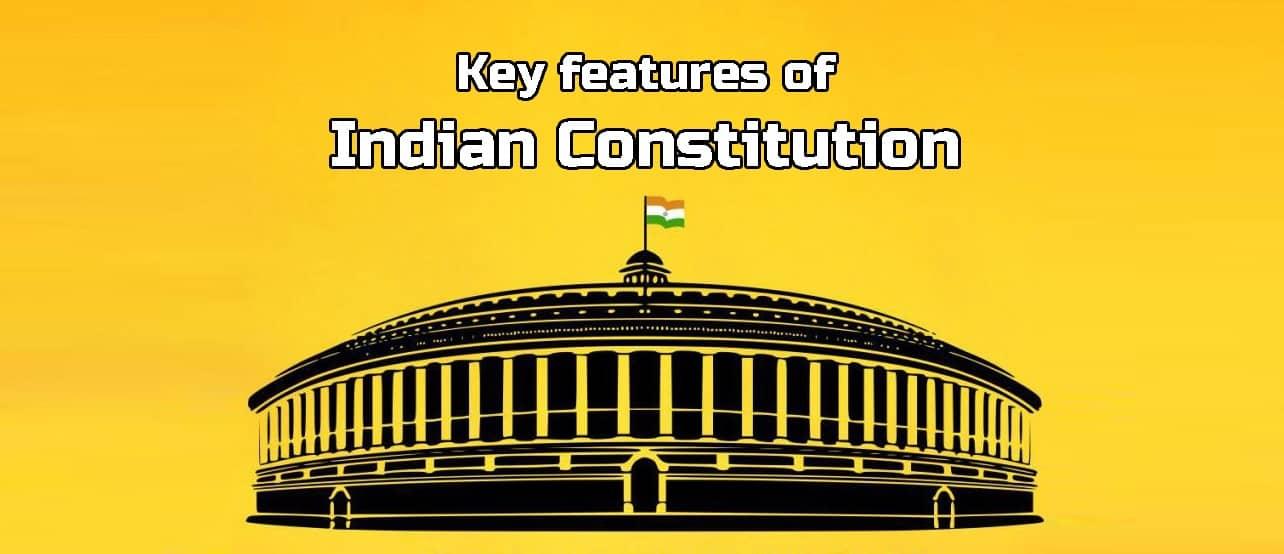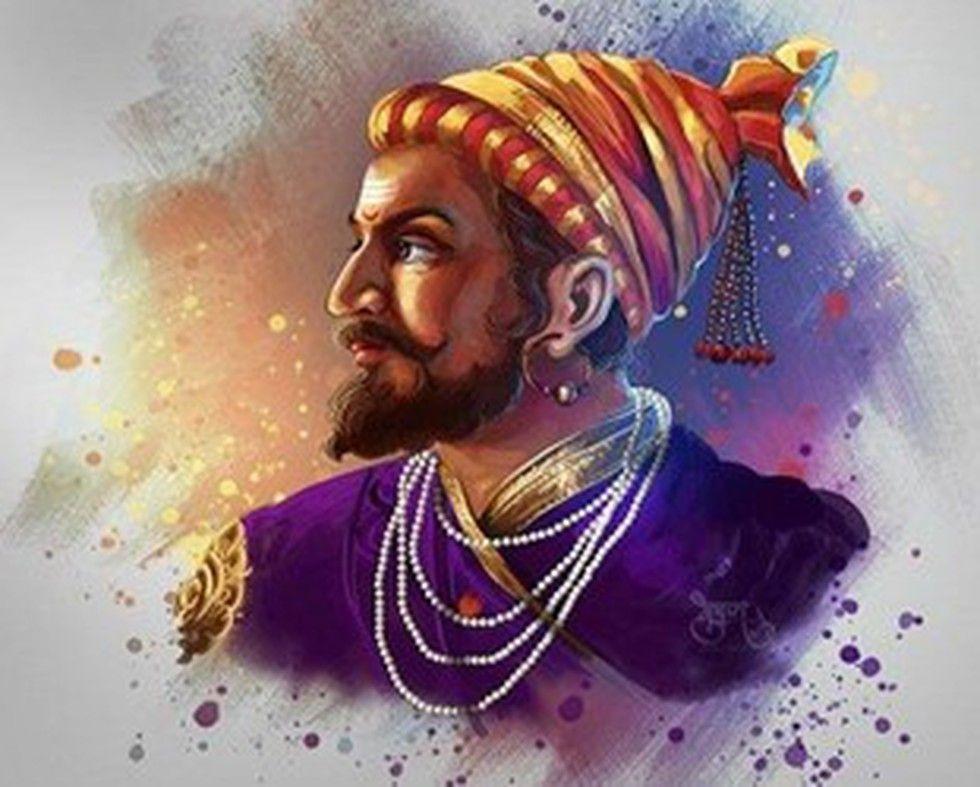A preamble serves as an initial section in a document, setting forth its philosophical underpinnings and goals. In the context of a Constitution, it articulates the framers' intentions, the historical context of its formation, and the foundational values and principles of the nation. Let's explore in detail what the Preamble of the Indian Constitution offers to the citizens of India.
- Blogs
- Indian Independence
- Indian Constitution Preamble Values & Significance 65a8c46214e5bf000128f387
Indian Constitution Preamble: Values and Significance
Indian Independence • 18 Jan, 2024 • 24,002 Views • ⭐ 3.5
Written by Shivani Chourasia

History of the Preamble to the Indian Constitution

Originating from Jawaharlal Nehru's Objectives Resolution, which the Constituent Assembly adopted on January 22, 1947, these principles form the basis of the Preamble to India's Constitution. While it does not have enforceable legal authority in court, the Preamble serves as a guiding tool during the interpretation of Articles in cases of vague language.
- Source of the Constitution: The preamble elucidates the origin of the Constitution's authority.
- Nature of Indian State: It proclaims India to be a sovereign, socialist, secular, and democratic republic.
- Statement of its Objectives: The preamble outlines its primary aims to ensure justice, liberty, and equality for all citizens and to foster fraternity to uphold the nation's unity and integrity.
- Date of its Adoption: The adoption date, November 26, 1949, is also specified in the preamble.
Keywords in the Preamble

"We, the people of India": This phrase underscores the ultimate sovereignty of India's citizens. Sovereignty here refers to the State's independent authority, free from the control of any external State or power.
INDIAN INDEPENDENCE QUIZ • 10 QUESTIONS • 2 MINS
We've got a Indian Independence quiz for you!
TAP TO PLAY

- Sovereign: This signifies India's independent authority, not being subordinate to any external power. It gives the legislative body the power to enact laws within certain constraints.
- Socialist: This implies the pursuit of socialist goals via democratic means, advocating a mixed economy where both private and public sectors coexist. This concept was integrated into the Preamble through the 42nd Amendment in 1976.
- Secular: This term signifies the equal respect, protection, and support that all religions receive from the state. It was included in the Preamble by the 42nd Constitutional Amendment in 1976.
- Democratic: This indicates that India’s Constitution is based on a system that derives its authority from the people's will, as expressed through elections.
- Republic: This term denotes that the head of state is elected by the people. In India, this refers to the President, who is the elected head of state.
The Indian Constitution stands as the paramount legal framework, playing a crucial role in upholding societal integrity and fostering unity among citizens to forge a strong nation.
Primary Goal of the Indian Constitution

Its principal aim is to cultivate harmony across the country. This goal is supported by several key principles:
Justice
INDIA QUIZ • 10 QUESTIONS • 2 MINS
We've got a India quiz for you!
TAP TO PLAY

Essential for societal order, justice is assured through various provisions in the Fundamental Rights and Directive Principles of State Policy in the Indian Constitution. It encompasses social, economic, and political aspects.
- Social Justice: This refers to the Constitution's aspiration to establish a discrimination-free society, regardless of caste, creed, gender, or religion.
- Economic Justice: Economic justice implies no discrimination based on wealth, income, or economic status. It ensures equal pay for equal work and equal opportunities for earning a livelihood.
- Political Justice: This ensures equal and unbiased access to political opportunities for all citizens.
- Equality: The concept of 'Equality' in the Constitution implies that no societal group enjoys special privileges. It guarantees equal opportunities to all individuals without discrimination, affirming that everyone is equal before the law.
- Liberty: 'Liberty' represents the freedom of individuals to choose their lifestyle, political views, and societal behaviors, within the boundaries set by law. It is not an unrestricted freedom, but one tempered by legal limits.
- Fraternity: 'Fraternity' fosters a sense of brotherhood and emotional connection with the country and its people. It is pivotal in enhancing the dignity and unity of the nation.
Significance of Objectives
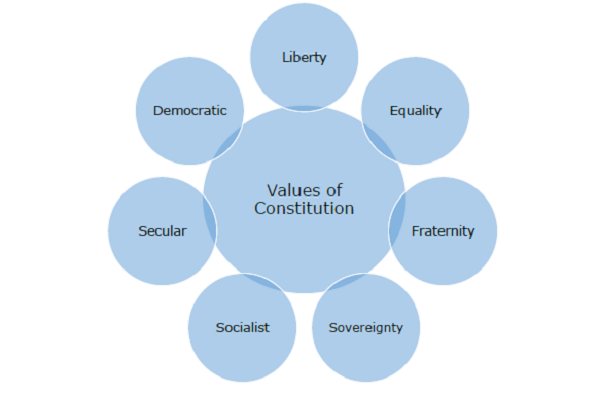
They provide a framework for a fulfilling life, with fraternity, liberty, and equality interwoven as essential and inseparable components. Liberty and equality are interconnected, as is their relationship with fraternity.
Interdependence of Liberty, Equality, and Fraternity
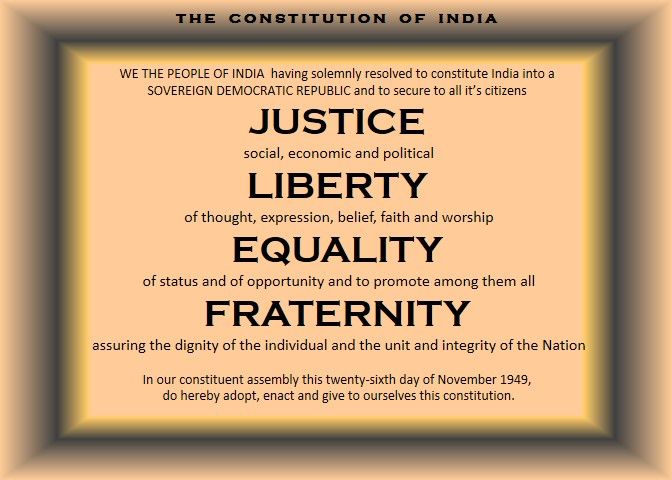
- Liberty and equality are intertwined; one cannot exist without the other. Without equality, liberty would lead to the dominance of a few over the many.
- Equality, without the presence of liberty, would stifle individual initiative.
- Fraternity is the glue that ensures that liberty and equality naturally coexist and flourish.
Status of the Preamble

The Preamble, although a part of the Constitution, has been a subject of discussion in the Supreme Court. Two key cases shed light on its status.
- Berubari Case: Under Article 143(1) of the Constitution, the Berubari Case was a reference related to the implementation of the Indo-Pakistan Agreement concerning the Berubari Union and the exchange of enclaves. The Court, in this case, acknowledged that the Preamble serves as a key to understanding the framers' intent but is not legally enforceable.
- Kesavananda Bharati Case: In this landmark case, a bench of 13 judges ruled that the Preamble is indeed a part of the Constitution. While not the supreme source of authority or restrictions, it plays a vital role in interpreting statutes and constitutional provisions.
Amendment of the Preamble
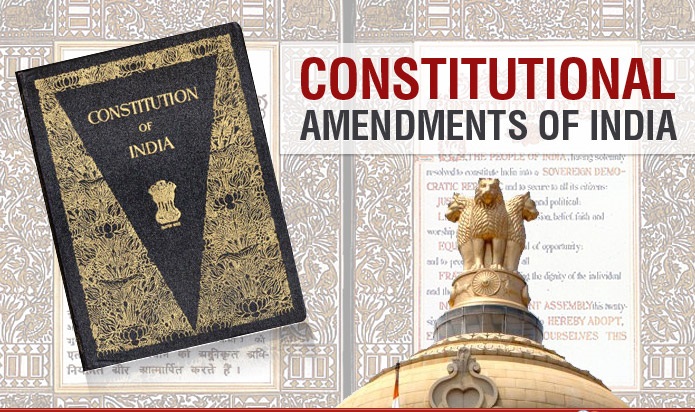
The 42nd Amendment Act of 1976 marked a significant development. It acknowledged the Preamble as a part of the Constitution. While the Preamble can be amended under Article 368, its basic structure remains unalterable.
The 42nd Amendment Act of 1976 introduced the terms 'Socialist,' 'Secular,' and 'Integrity' into the Preamble, positioning them between 'Sovereign' and 'Democratic.' Additionally, 'Unity of the Nation' was modified to 'Unity and Integrity of the Nation.'
- Fact: Article 394 of the Constitution specifies that certain Articles came into effect on November 26, 1949, while the remaining provisions became effective on January 26, 1950. The ideals of Liberty, Equality, and Fraternity in our Preamble were inspired by the motto of the French Revolution.
Conclusion
The Preamble is an integral part of the Constitution, but it is not directly enforceable in Indian courts, as reaffirmed in the 1995 case of Union Government Vs LIC of India. It serves as a guiding light, encapsulating the nation's ideals and aspirations. It outlines the Constitution's objectives, emphasizing justice, liberty, equality, and fraternity as pillars of a harmonious society. These principles are interdependent, with liberty and equality intertwined and fraternity fostering unity. While the Preamble is an integral part of the Constitution, it lacks direct enforceability in courts. Key legal cases have clarified its status, with the Kesavananda Bharati Case affirming its importance in interpreting statutes. The 42nd Amendment Act of 1976 introduced crucial changes, acknowledging the Preamble's significance. It stands as a testament to India's commitment to a just, equitable, and unified nation.
Test your knowledge of Indian Independence. Visit: https://4123.play.quizzop.com/indian-independence-quiz/category
Rate this article
Other articles you may like
India's Journey: From British Rule to Republic
Indian Independence • 18 Jan, 2024 • 23,669 Views

B.R. Ambedkar: Father of Indian Constitution
Indian Independence • 18 Jan, 2024 • 23,956 Views
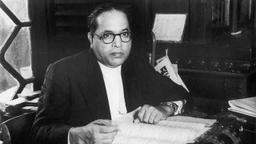
National Unity Day 2023: Honouring Sardar Patel's Legacy
Indian Independence • 31 Oct, 2023 • 36,769 Views

Celebrating India’s 77th Independence Day 2023
Indian Independence • 14 Aug, 2023 • 20,342 Views

India's Top 5 Independence Era Struggle Places
Indian Independence • 4 Aug, 2023 • 25,510 Views

